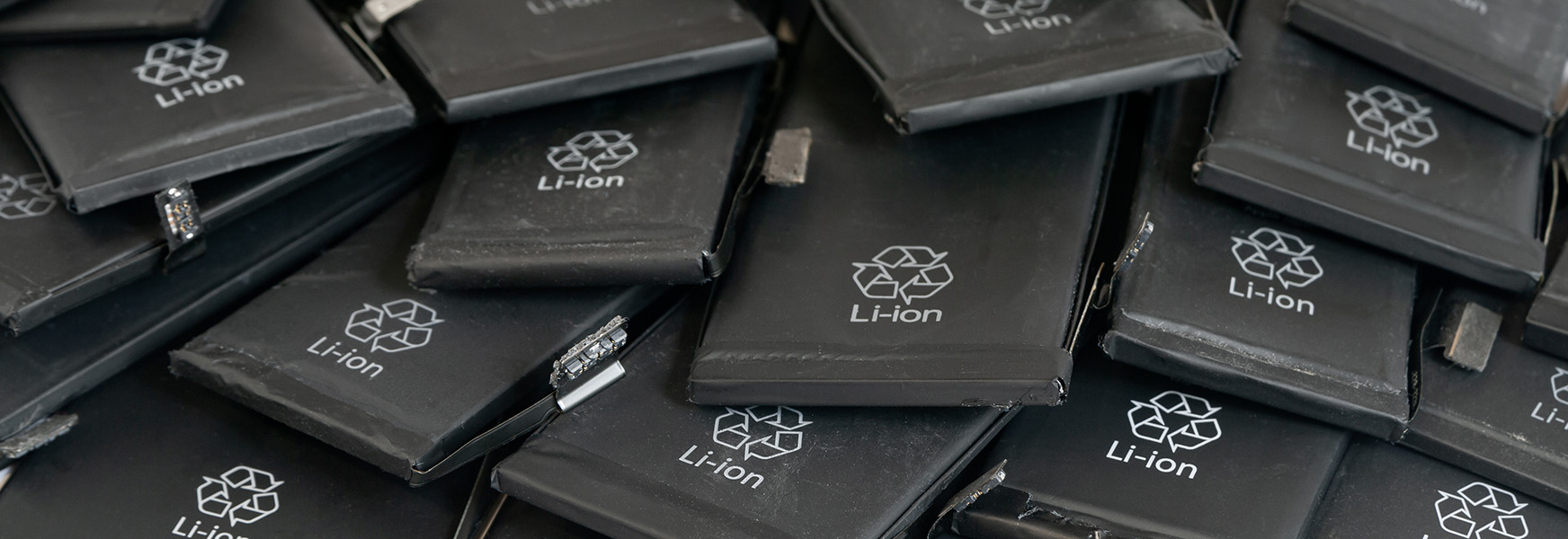Don’t Get Burned! Know the Hidden Dangers of lithium-ion Batteries

With the ever-growing popularity of portable electronics comes the challenge of dealing safely with lithium-ion batteries. From consumer products like smart phones and laptop computers to wearable medical devices, scooters, electric bikes, automobiles and smoke alarms, lithium batteries provide a fast charge to keep us moving in a fast-paced world. They also overheat very quickly and could cause serious personal and property damage if not stored and maintained properly, as MEMIC Safety Management Consultant Clayton Cartwright recalls from a personal experience last year:
“It was 5 am and my wife and I were woken up by our dog barking…something he rarely does. I went downstairs to see what was wrong, and as I entered the living room, I was overcome by the smell of smoke. I told my wife to wake the kids in case we needed to get out of the house quickly. I looked in the kitchen to see if an appliance was smoking…nothing, I went into the basement to see if the smell was coming from our HVAC unit…nothing. At this point, my wife had the kids sitting on the coach with their coats on, and my daughter said, “It smells really strong over here.” My wife walked over and looked at a vent behind the couch…nothing. That’s when she looked down at the phone that was charging on the back of the chair. The phone was split along the sides, the insides were burnt, and she could see the case was melted. I moved the phone outside to cool on our patio. The outline of the phone was singed into the cushion. It was an old phone that we allowed our girls to use to play games and message their friends. We are now more cautious about charging electronics overnight, and we certainly don’t place them on the furniture to do so.”
The U.S. Consumer Product Safety Commission (CPSC) has recorded more than 25,000 instances of overheating or fires involving more than 400 types of consumer products powered by lithium batteries from 2014 through 2017.
Deficiencies in quality, poorly designed “knockoffs”, incorrect assembly, and damaged parts are all factors that can cause batteries to overheat, explode, or ignite, causing damage to property and a threat to lives.
Without lithium-ion batteries, our ability to stay in touch and get things done would be limited. Fortunately, devices powered by them are normally safe under most use conditions. But look out for lithium-ion batteries that are poorly designed, consist of low-quality materials, have been assembled incorrectly, or been damaged.
Use these safety tips from the National Fire Protection Association (NFPA) to help prevent lithium-ion battery injuries:
- Only use batteries designed for the device in use. Check the manual or the manufacturer’s website to find the correct size and type.
- Only purchase and use devices that are listed by a qualified testing laboratory.
- Avoid charging your device around flammable materials, such as a bed, couch, or paper.
- Charge your device with the power cord that came with it.
- Never keep lithium-ion batteries near heat sources or exposed for long periods of time to high temperatures, such as in direct sunlight, or near radiators or laptops.
- Never throw lithium-ion batteries in the trash. This causes pollution and can be a fire hazard. Used lithium-ion batteries should be taken to a battery recycling location, hazardous waste roundup, or contact your local waste management service for disposal instructions.
- If you notice a device overheating, emitting odor or leaks, bulging or changing color or shape, the battery may be overheating: Shut off the device and move it away from anything that can catch on fire. Call 911.
As lithium-ion batteries continue to power mobile productivity, invest some of that time you saved in a few simple steps to safely use them and avoid fire hazards.

